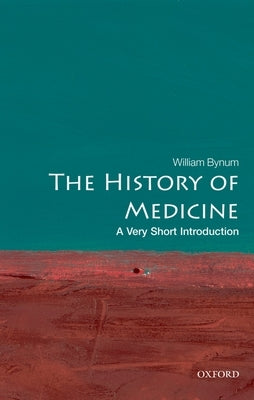Oxford University Press, USA
The History of Medicine: A Very Short Introduction
The History of Medicine: A Very Short Introduction
Couldn't load pickup availability
Against the backdrop of unprecedented concern for the future of health care, this Very Short Introduction surveys the history of medicine from classical times, through the scholastic medieval tradition and the Enlightenment to the present day.
Taking a thematic rather than strictly chronological approach, W.F. Bynum, explores the key turning points in the history of Western medicine as the first surgical procedures, the advent of hospitals, the introduction of anesthesia, X-rays, vaccinations, and many other innovations, as well as the rise of experimental medicine.
The book also explores Western medicine's encounters with Chinese and Indian medicine, as well as nontraditional treatments such as homeopathy, chiropractic, and other alternative medicines.
Covering a vast amount of information, this Very Short Introduction sheds new light on medicine's past, while at the same time engaging with contemporary issues, discoveries, and controversies, such as the spiraling costs of health care, lack of health insurance for millions, breakthrough treatments, and much more.
For readers who wish to understand how we have arrived at our current state of medical practice and knowledge, this book is essential reading.
About the Series: Combining authority with wit, accessibility, and style, Very Short Introductions offer an introduction to some of life's most interesting topics. Written by experts for the newcomer, they demonstrate the finest contemporary thinking about the central problems and issues in hundreds of key topics, from philosophy to Freud, quantum theory to Islam.
Author: William Bynum
Publisher: Oxford University Press, USA
Published: 08/24/2008
Pages: 184
Binding Type: Paperback
Weight: 0.30lbs
Size: 6.60h x 4.30w x 0.60d
ISBN: 9780199215430
About the Author
W. F. Bynum is Professor Emeritus of the history of medicine at the Wellcome Centre for the History of Medicine at University College London. He is the author of Science and the Practice of Medicine in the Nineteenth Century and the Oxford Dictionary of Scientific Quotations (1994). He is a Fellow of the Royal College of Physicians of London and of Edinburgh.
Share


